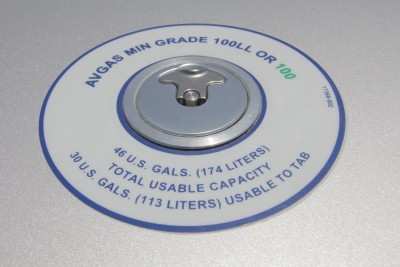Mon, Jun 17, 2013
Actively Seeking Partners to Join The Effort
The National Research Council of Canada (NRC) is launching a concentrated research effort to find an appropriate high octane gasoline alternative for 100LL (low lead) aviation gasoline (AVGAS). NRC is actively seeking partners and collaborators to join this effort to ensure the long-term viability of the general aviation industry.

“As part of its ‘Clean Air Agenda,’ the Government of Canada is committed to finding ways to reduce airborne pollutants that result from air transportation,” says Jerzy Komorowski, general manager of NRC Aerospace. “To achieve these reductions, we must find a suitable unleaded aviation gasoline alternative to ensure the long-term viability of the piston-powered aircraft, which is commonly used in general aviation.”
“Analysis of NRC’s world-first civil flight powered by 100 percent biofuel revealed 50 percent reductions in aerosol emissions compared with conventional jet fuel,” says Komorowski. “These are positive results, and we hope to build on them with this new research effort. It is a natural progression that NRC continues alternative jet and aviation gasoline fuels research for the general aviation market.”
General aviation represents all aviation other than military and commercial airline applications. For those communities without scheduled air service, primarily in rural and northern Canada, general aviation is the primary air transportation of passengers and cargo. These flights are conducted by twin-engine aircraft with high compression piston engines requiring a minimum of 100 octane fuel. Unfortunately this fuel is the only one in widespread use still containing lead, a toxic metal that accumulates in the human body and can have neurotoxic effects.

The general aviation industry views the availability of an appropriate high octane alternative to 100LL AVGAS as a critical need. Research focus is required on 100LL alternatives to ensure a safe transition to any new fuels in Canada's unique operating environment. At present, there are two lower lead content/octane certified fuels available and three experimental alternative fuels being proposed by various fuel manufacturers. NRC is interested in investigating the viability of these fuels and can provide recommendations for the development and deployment of a qualified replacement fuel.
More News
He Attempted To Restart The Engine Three Times. On The Third Restart Attempt, He Noticed That Flames Were Coming Out From The Right Wing Near The Fuel Cap Analysis: The pilot repor>[...]
Make Sure You NEVER Miss A New Story From Aero-News Network Do you ever feel like you never see posts from a certain person or page on Facebook or Instagram? Here’s how you c>[...]
From 2009 (YouTube Edition): Leading Air Show Performers Give Their Best Advice for Newcomers On December 6th through December 9th, the Paris Las Vegas Hotel hosted over 1,500 air >[...]
Aero Linx: NASA ASRS ASRS captures confidential reports, analyzes the resulting aviation safety data, and disseminates vital information to the aviation community. The ASRS is an i>[...]
“For our inaugural Pylon Racing Seminar in Roswell, we were thrilled to certify 60 pilots across our six closed-course pylon race classes. Not only did this year’s PRS >[...]
 NTSB Final Report: Rutan Long-EZ
NTSB Final Report: Rutan Long-EZ ANN FAQ: Turn On Post Notifications
ANN FAQ: Turn On Post Notifications Classic Aero-TV: ICAS Perspectives - Advice for New Air Show Performers
Classic Aero-TV: ICAS Perspectives - Advice for New Air Show Performers ANN's Daily Aero-Linx (06.28.25)
ANN's Daily Aero-Linx (06.28.25) Aero-News: Quote of the Day (06.28.25)
Aero-News: Quote of the Day (06.28.25)




